Turkey Has Become a Semi-Candidate Country for EU Membership
Adelina Marini, May 3, 2017
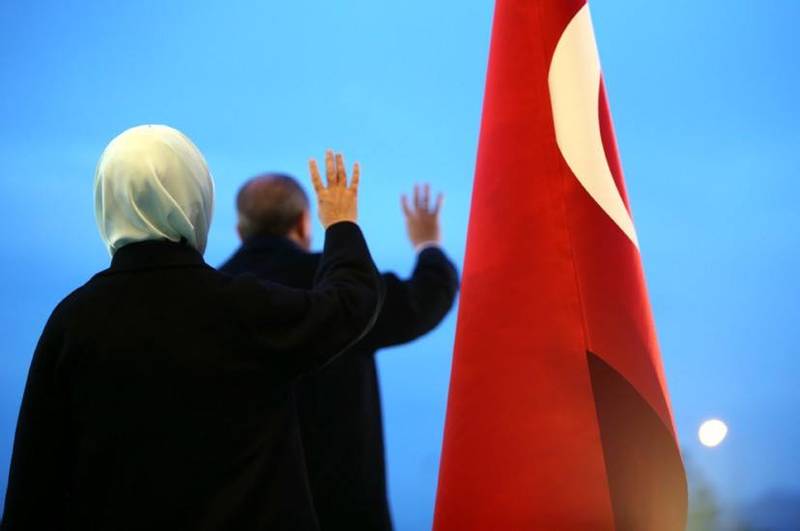 The EU has finally officially recognised the obvious, namely that Turkey no longer fulfils the criteria to be a candidate for EU membership. The Union, however, is divided on what to do next - whether to formally end the negotiations with the oldest candidate for membership or just to announce them frozen, as they practically are at the moment. The reason for the latest EU dilemma is the referendum, which took place on April 16th, which gives the president new, sweeping powers. The Parliamentary Assembly of the Council of Europe (PACE), an institution that measures the democratic evolution of its members, has voted a resolution which restores permanent monitoring of Turkey. This means that the country has returned to its starting point in terms of democratic development. Until 25 April, Turkey was subjected only to a follow-up surveillance, which is levied on countries where democracy has started, but has not developed fully yet. Bulgaria, by the way, is still in this group, regardless of its ten-year long EU membership.
The EU has finally officially recognised the obvious, namely that Turkey no longer fulfils the criteria to be a candidate for EU membership. The Union, however, is divided on what to do next - whether to formally end the negotiations with the oldest candidate for membership or just to announce them frozen, as they practically are at the moment. The reason for the latest EU dilemma is the referendum, which took place on April 16th, which gives the president new, sweeping powers. The Parliamentary Assembly of the Council of Europe (PACE), an institution that measures the democratic evolution of its members, has voted a resolution which restores permanent monitoring of Turkey. This means that the country has returned to its starting point in terms of democratic development. Until 25 April, Turkey was subjected only to a follow-up surveillance, which is levied on countries where democracy has started, but has not developed fully yet. Bulgaria, by the way, is still in this group, regardless of its ten-year long EU membership.
Turkey united Eurosceptics and pro-European forces in the European Parliament
The EU has walked a long way of inaction with regard to Turkey, with which the membership talks have been partially frozen because of the unresolved issue with Cyprus and because of the lack of consensus in the EU on the acceptability of Turkey's full-fledged membership in the Union. Besides the blocked 8 chapters, the opening of new chapters has also gone extremely slowly for years. The negotiation process was virtually halted until 2015, when the EU was hit by a severe refugee crisis. The deal, struck between the Union and Turkey for holding the refugees on Turkish territory is currently the thing that holds the negotiating process hanging in a legal and political vacuum. This reason was named directly by not just anyone, but by Hungarian Foreign Minister Péter Szijjártó, whose country also fell out of favour because of expressed preferences for illiberalism.
Before the start of the informal meeting of EU foreign ministers in Malta on Friday (April 28th), in which what is to be done with Turkey was the main topic, Mr Szijjártó said that with the migration deal the EU has decided to leave its security in the hands of Turkey and the Turkish leadership. “When we need Turkey, we forget about other issues. When we'd like to bash Turkey, we forget about the migration deal”, explained the Hungarian diplomat. His Slovak colleague Miroslav Lajčák, however, disagreed. “We need to stop lying and pretending that we are believing something which we don’t believe in. Membership to the EU is about values and these values must be underpinned by 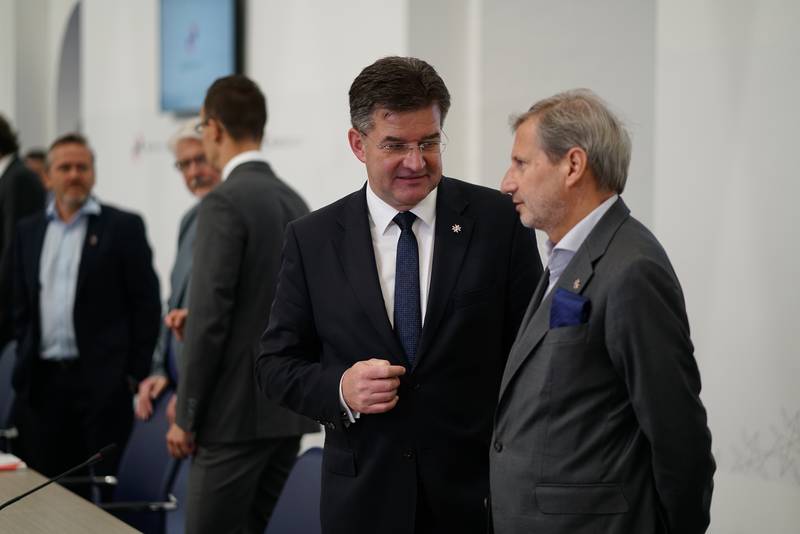 concrete steps”, he said, but refrained from answering the question whether this means ceasing the negotiations.
concrete steps”, he said, but refrained from answering the question whether this means ceasing the negotiations.
The debate on Turkey in the European Parliament on April 26 showed how difficult it is to resolve the dictator dilemma – whether to work with dictators in the name of strategically important issues and the democratically oriented opposition or to stop all contacts. European Parliament President Antonio Tajani (EPP, Italy) said the EU has no intention of closing the door for the Turkish people with whom the EU remains friends. He reminded Turkish President Recep Tayyip Erdoğan that Europe is not an Islamophobic continent. "We have millions of citizens who are members of the Islamic faith, who enjoy every freedom to practise their religion and are not discriminated against in any way."
Commissioner for Enlargement Negotiations Johannes Hahn (Austria, EPP) believes Turkey is moving away from the EU. He said it was time to think of a new form of cooperation that would not harm Turkey or the Turkish people. The head of the largest political group in the European Parliament, Manfred Weber (EPP, Germany) reiterated his position, stated numerous times in recent years, that to the EPP a full membership of Turkey is no longer a realistic option. "In 2014, we promised that Turkey has an opportunity to become a member, but I think that this promise has caused more damage than help Turkey".
In his words, the basis of future relations with Turkey must be honesty. "[We have] to say what is possible and what is not possible. We don’t want to close the door - a customs union for example, maybe, that can be expanded. Maybe more economic cooperation, maybe we open our doors for students", he suggested. The European Parliament's rapporteur for Turkey, Kati Piri (Socialists and Democrats, The Netherlands), born in Hungary, also stated that Turkey could not become a member of the EU. She is, however, of the opinion that the referendum in the country has shown that democracy there is not dead. "On the contrary, despite the unfair electoral environment, the intimidation of the No campaigners and the massive control of the media by the government, half of Turkey’s population showed that they are ready to push back for the democratic future of their country. The EU must fiercely support those forces", she said.
The leader of the conservative group, Syed Kamal (ECR, UK), too called not to turn the back on Turkey entirely. He believes the EU has to be honest with Turkey that it cannot become a member. He also explained the reasons - prejudices against the predominantly Muslim population; a territory that is mainly located in Asia; the prospect of free movement of millions of Turks; the prospect of changing the weight of votes in the EU Council of Ministers and in the European Parliament; shifting the external border of the EU to countries such as Iran, Iraq, and Syria.
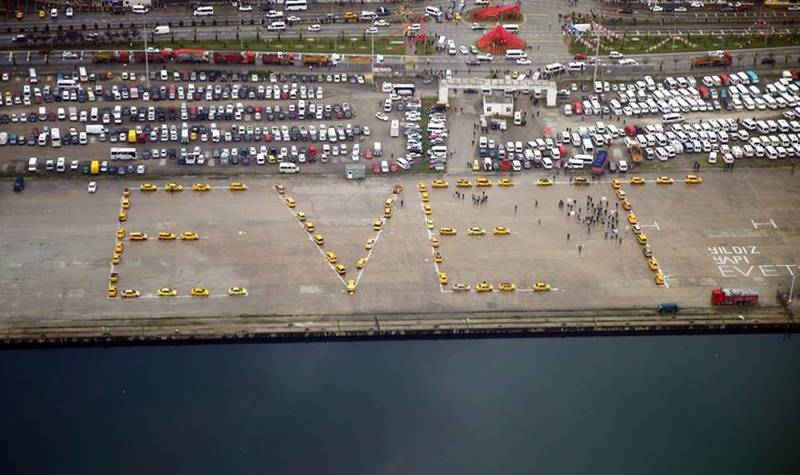
Guy Verhofstadt (ALDE, Belgium) has called for the negotiations with Turkey to be suspended and a new proposal made. "I think that continuing this, so-called not formally suspended ‘accession’, is a cover-up that even makes it possible for some people in the Turkish authorities to further clamp down on civil society, on journalists, on the opposition, and so on". Martina Michels (GUE/NGL, Germany) warned that ending the negotiations would isolate civil society. "Erdoğan wants to provoke a break off of the negotiations and wants to profit with that domestically", said the Die Linke MEP. Her countrywoman of the Greens/European Free Alliance, Ska Keller, believes that dealing with Turkey cannot continue as business as usual, but attention should be paid to the 49 percent who voted "no", despite all threats.
She also believes that deepening the customs union with Turkey is exactly what Erdoğan wants and will thus deprive the Union of a leverage instrument. Cristian Dan Preda (EPP, Romania), who is the rapporteur for Bosnia and Herzegovina, expressed concern about the spreading of Erdoğanism in Europe itself and especially in BiH. He said Bakir Izetbegovic, the BiH leader, sees Mr Erdoğan as a role model. To the Erdoğanists he also added the currently ruling Social Democrats in Romania.
Croatian MEP Ruža Tomašić (ECR) went even further by saying that Turkey does not belong to the same cultural and civilisation circle and therefore has no place in the EU. "Despite many being disappointed, it is not our job to shape Turkey into our measures, it is the task of its citizens", she said. Unlike the MEPs, the ministers of foreign affairs of the 28 EU member states were far more cautious. Before the start of their meeting in Malta, most of them refused to talk publicly about future relations with Turkey. For some, human rights are important, but Turkey's strategic role in the Middle East is no less important. "Free, rule of law, democratic Turkey is dead", announced Jean Asselborn, the long-standing Luxembourg foreign minister. According to him, the time has not yet come to decide what the future relations with Turkey will be.
Lithuanian top diplomat Linas Linkevičius firmly stated that he does not believe in the success of sanctions or pressure. It is necessary for the EU to remain committed, to talk and to listen. To Czech Foreign Minister Zaorálek, the only red line is the introduction of the death penalty. Everything else can be swallowed in the name of strategic interests.
The negotiations are dead! Long live the negotiations!
Foreign ministers came out with a rather vague message after their meeting in Malta. High Representative of the European Union for Foreign Affairs and Security Policy Federica Mogherini (Italy, Socialists and Democrats) has announced that the negotiations have not been suspended, but there is no work on the opening of new negotiating chapters. At the same time, she reminded that the accession criteria are very clear and Turkey is also well acquainted with them. “If Turkey is interested in accession negotiations - as Foreign Minister Çavuşoğlu told us today and I understand President Erdoğan expressed the same views in recent hours - if Turkey is interested in accession negotiations, it knows very well what it implies, especially in the field of human rights, rule of law, democracy, fundamental freedoms including media freedom, obviously the death penalty, and the respect of international law and the principle of good neighbourly relations”, were the words of Ms Mogherini.
She added that these are the principles on the basis of which a country is named a candidate for EU membership. The work on visa liberalisation also remains open and with an unexpected ending. On this issue, Ms Mogherini spoke evasively, saying that a way to go on needs to be found. With this position, which is not yet formal for the EU as informal 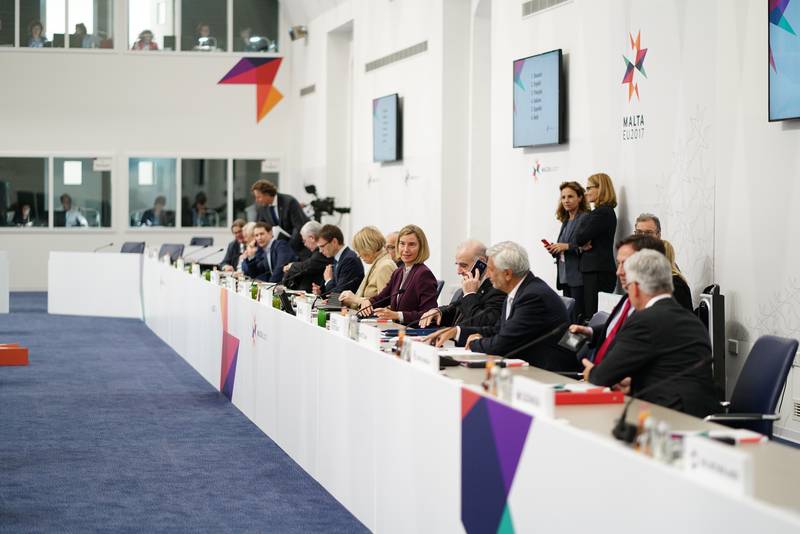 meetings do not produce official positions, the Union has actually passed the ball to Turkey.
meetings do not produce official positions, the Union has actually passed the ball to Turkey.
Under EU law, in order for a country to become a candidate state it must meet the following political criteria: stability of institutions guaranteeing democracy, rule of law, human rights, respect for and protection of minorities. With their actions after the failed coup attempt of last year, the Turkish government has shown that it does not meet any of these criteria. This is also clearly shown in the European Commission report on Turkey's progress (or rather regress) towards EU membership. The reinstatement of the Council of Europe's monitoring of Turkey is also a clear sign that Turkey is no longer eligible for EU candidate status.
Despite the assurances, which Ms Mogherini quoted, Reuters reported that the Turkish president has set an ultimatum for the EU – either to open new negotiating chapters, or Turkey will say "goodbye" to the bloc. He said this during the ceremony of his return to the ruling AK party, despite his post being non-partisan.
Translated by Stanimir Stoev
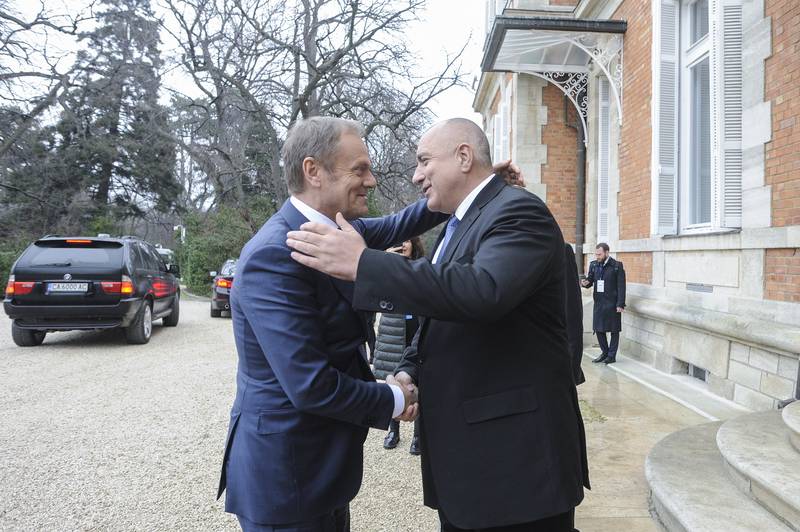 Donald Tusk, Boyko Borissov | © Council of the EU
Donald Tusk, Boyko Borissov | © Council of the EU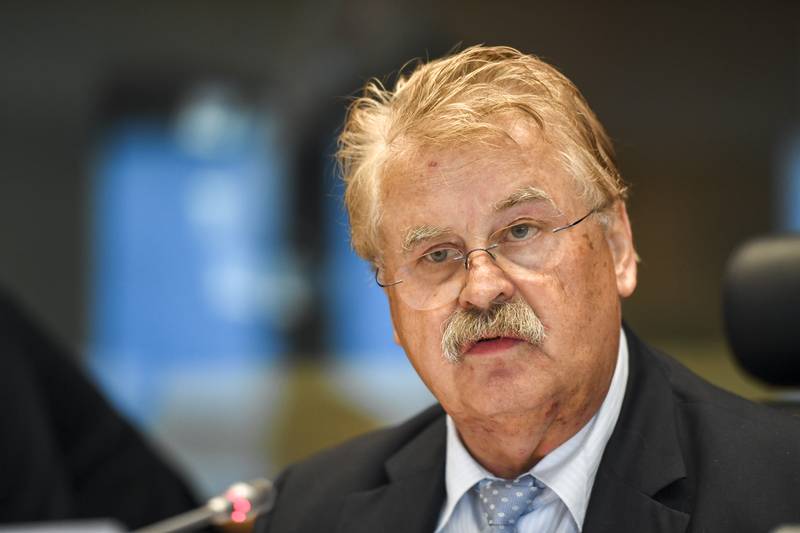 Elmar Brok | © European Parliament
Elmar Brok | © European Parliament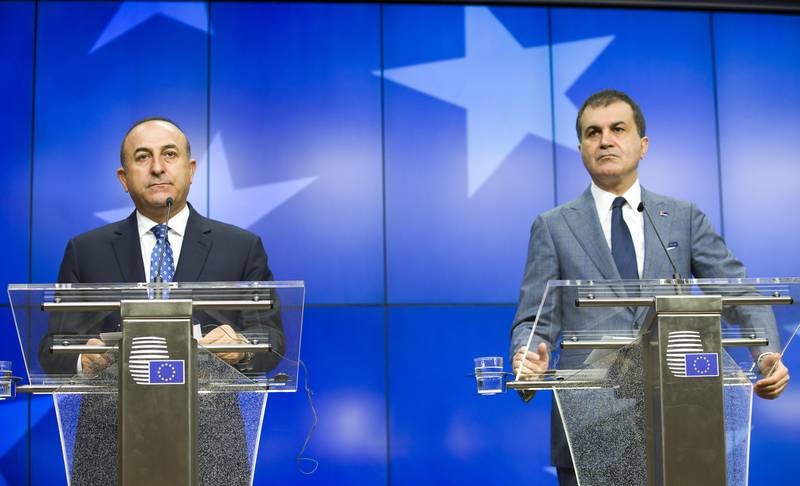 Mevlüt Çavuşoğlu, Ömer Çelik | © Council of the EU
Mevlüt Çavuşoğlu, Ömer Çelik | © Council of the EU